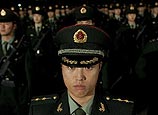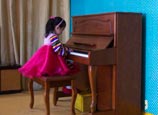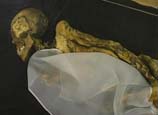
Japanese automakers universally reported declining sales in China after protests over Japan's illegal "purchase" of the Diaoyu Islands in September led to calls to boycott their products.
Less prominent brands have proved the most vulnerable, said Zeng Zhiling, director of LMC Automotive Asia Pacific Forecasting, an automotive industry research group.
For instance, Mitsubishi Motors Corp reported that its China sales decreased by 63 percent in September, falling to 2,340 vehicles. Mazda Motor Co said its sales in the country decreased by 36 percent, down to 13,258 vehicles for the month.
"The consequences are so huge that the total market share of Japanese cars fell by about 12 percentage points to about 8 percent in October," Zeng said.
The dispute has cooled off a bit, he said, but courage is still needed to be seen in a Japanese car in some places in China.
A study last month by the banking corporation JP Morgan Chase & Co predicted the number of Japanese car exports to China would decrease by 70 percent from October to December. At the same time, it said car part exports would fall by 40 percent, a rate of decline also predicted for many types of consumer products.
Before tensions erupted over the islands, Japanese automakers had held slightly more than a fifth of the Chinese auto market. So long as the tensions continue, they may see their sales decline again, Zeng said.
"It's safe to say that this political row, if it's not fully resolved, will be a time bomb that could deal a heavy blow to Japanese cars," he added.
















 Bullet train attendants receive trainings in China's Shenyang
Bullet train attendants receive trainings in China's Shenyang


![]()
